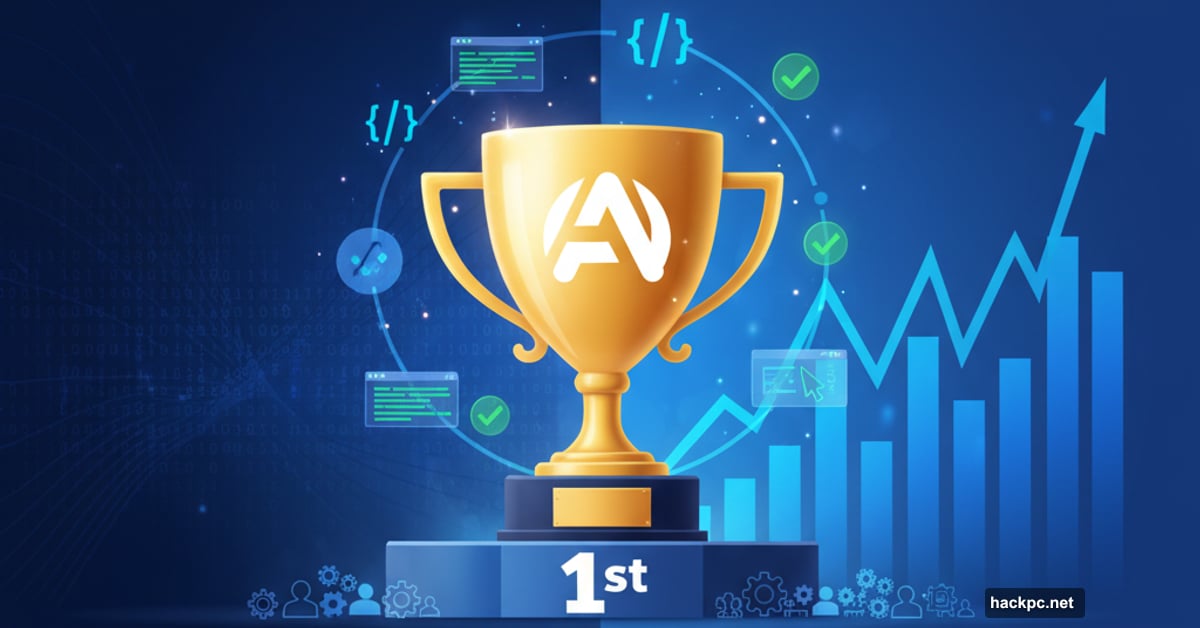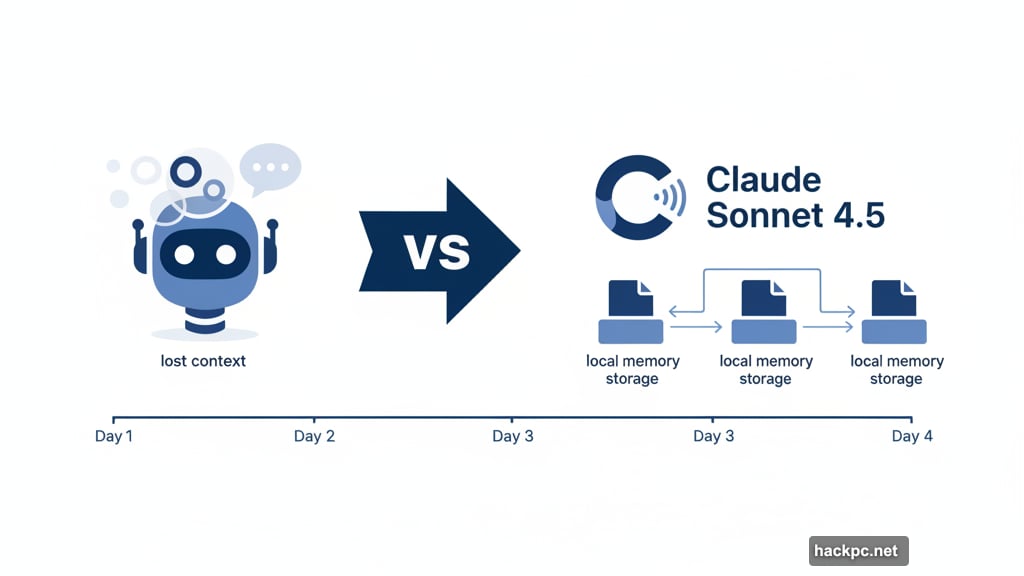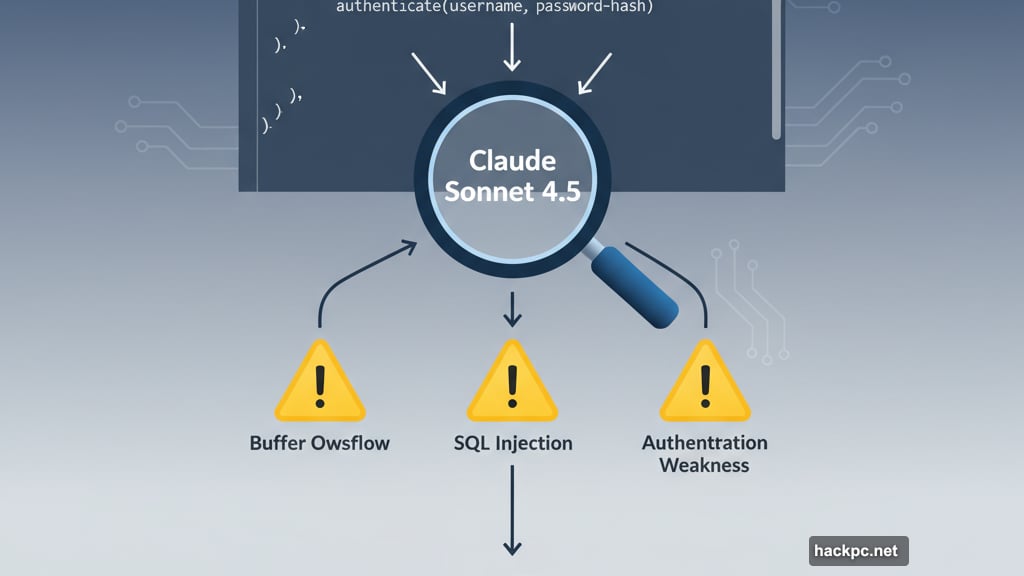
Anthropic dropped Claude Sonnet 4.5 through Amazon Bedrock last week. The AI community went nuts.
Why? This model doesn’t just write code. It plans multi-day projects, manages memory like a senior developer, and actually finishes what it starts. That’s rare in the AI world.
Let’s break down what changed and why it matters for anyone building software.
Coding That Actually Works
Most AI coding assistants fail at complex projects. They lose context. They forget what you asked three prompts ago. They generate code that looks good but breaks in production.
Claude Sonnet 4.5 takes a different approach. It handles entire codebases across multiple files. Plus, it suggests edits that make sense in the broader context of your project.
Here’s the impressive part. Developers report running projects that span days without the AI losing track. That’s huge. Previously, you’d need to constantly remind AI assistants about project structure and goals.
The model maintains focus through long sessions. So it can refactor legacy code, build new features, and debug issues without constant hand-holding. In fact, early testers say it performs like a junior developer who actually reads documentation.
Memory That Sticks Around
Context management separates good AI from great AI. Claude Sonnet 4.5 nails this.
Traditional AI models dump old conversations when memory fills up. That creates frustrating experiences. You explain something. The AI forgets. You explain again. Repeat forever.
This model uses smart memory management. It stores important information in local files between chat sessions. So conversations feel connected and personal across days or weeks.
Moreover, it clears old tool interactions automatically. That prevents memory crashes during lengthy debugging sessions. The result? Smooth performance even during complex, multi-step operations.
Developers can finally build agents that remember project-specific details. No more repeating context every single time you start a new chat.
Security Gets Proactive
Cybersecurity teams face constant pressure. Threats evolve faster than defenses. Manual security audits can’t keep pace.
Claude Sonnet 4.5 changes the game here. It builds agents that identify vulnerabilities before attackers exploit them. That shifts security from reactive to proactive.
The AI analyzes codebases for common security flaws. Buffer overflows. SQL injection risks. Authentication weaknesses. It flags these issues and suggests specific fixes.
But here’s what makes it different. The model understands context around security decisions. It doesn’t just throw generic warnings. Instead, it explains why specific code patterns create risks in your particular application.

Several security firms already test agents built on this model. Early results show it catches issues human reviewers miss during standard code reviews.
Finance Gets Faster Analysis
Financial institutions drown in data. Market reports. Risk assessments. Compliance documents. Manual analysis takes weeks.
This AI model processes financial data at scale. It handles everything from basic spreadsheets to complex predictive models. Plus, it explains its reasoning in clear language.
Risk management teams benefit most. The model identifies patterns across thousands of transactions. It flags anomalies that might indicate fraud or compliance issues. Then it generates audit-ready reports automatically.
One investment firm reported cutting analysis time by 60%. Their team now spends less time crunching numbers and more time making strategic decisions. That’s the practical value AI should deliver.
Research Moves Faster
Scientific research involves mountains of data. Organizing it all takes forever. Writing it up takes even longer.
Claude Sonnet 4.5 speeds up both processes. It manages datasets efficiently. It creates publication-ready documents. Moreover, it offers insights that researchers might overlook.
The model excels at finding patterns in large datasets. It can process research from multiple sources and identify connections between studies. That accelerates discovery in fields from medicine to materials science.
Researchers still drive the science. But they spend less time on administrative tasks and more time on actual discovery. That’s how AI should support human expertise.
Amazon Bedrock Makes It Easy
Getting started with Claude Sonnet 4.5 is straightforward through Amazon Bedrock’s API system.
Developers can switch between AI models using one interface. That makes testing different approaches fast and convenient. No need to rewrite code for each model.
The API handles context windows intelligently. Long conversations don’t crash due to memory limits. Plus, setup takes minutes instead of hours.
Amazon designed the system for developers who want results, not complexity. You call the API. It returns useful responses. Simple.
The Catch Nobody Mentions
This model costs real money. Amazon Bedrock isn’t free. Usage adds up quickly for high-volume applications.
Plus, Claude Sonnet 4.5 runs on cloud infrastructure. That means your code goes to external servers. Some companies can’t accept that security tradeoff.

Response times vary based on complexity. Simple queries return fast. Complex coding projects take longer. Sometimes minutes instead of seconds.
Moreover, the model occasionally makes mistakes. It’s not perfect. Developers still need to review and test everything it generates. Blindly trusting AI output causes production bugs.
So yes, this AI is impressive. But it’s a tool, not a replacement for skilled developers.
What This Means for Developers
AI coding assistants keep getting better. Claude Sonnet 4.5 represents a meaningful step forward.
Junior developers gain a powerful learning tool. The AI explains concepts while writing code. That accelerates skill development.
Senior developers save time on routine tasks. Code reviews become faster. Refactoring goes smoother. Documentation writes itself.
But the biggest impact hits team productivity. Companies report finishing projects 30-40% faster when developers use advanced AI assistants effectively.
That doesn’t mean AI replaces developers. Instead, it amplifies what good developers already do. The best programmers will use these tools to build better software faster.
The gap between developers who embrace AI and those who resist will grow wider. Companies hiring will increasingly expect familiarity with AI-assisted development.
Should You Try It?
Start small if you’re curious. Test Claude Sonnet 4.5 on non-critical projects. See how it handles your specific coding challenges.
Pay attention to where it excels and where it struggles. Every AI has strengths and weaknesses. Understanding those helps you use the tool effectively.
Watch your costs. Monitor API usage carefully during early testing. Unexpected bills are common when experimenting with new AI services.
Most importantly, maintain healthy skepticism. Review everything the AI generates. Test thoroughly. Never deploy AI-written code without human verification.
This technology will keep improving. Getting comfortable with it now positions you well for the future. But rushing to adopt without understanding creates more problems than it solves.
Choose wisely. Start testing today. Just keep your expectations realistic.



Comments (0)